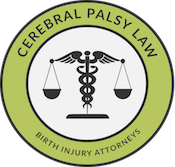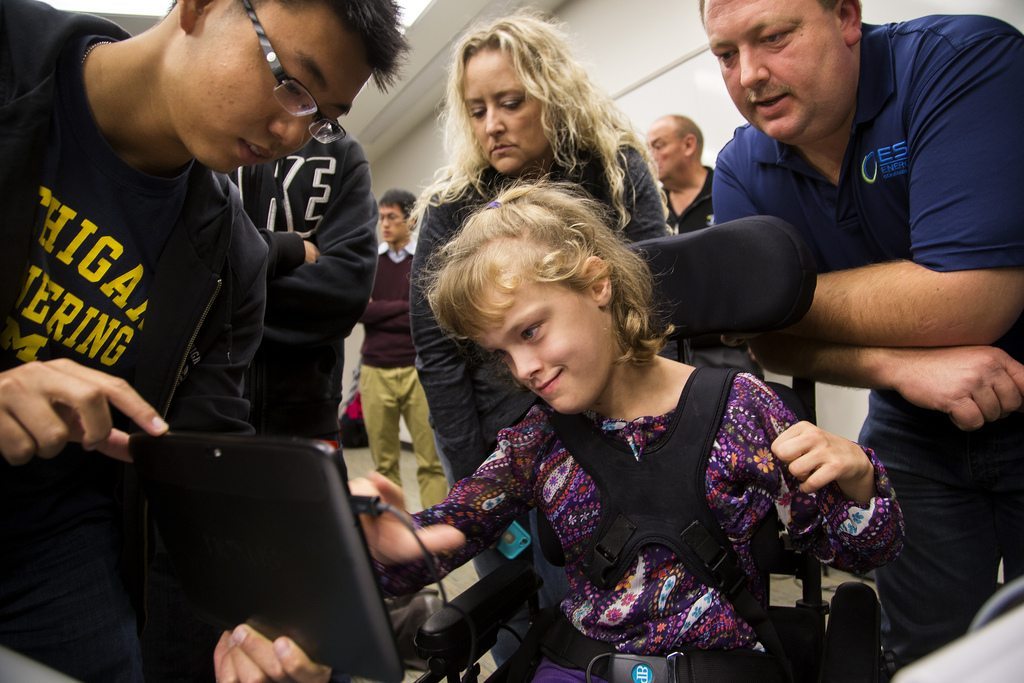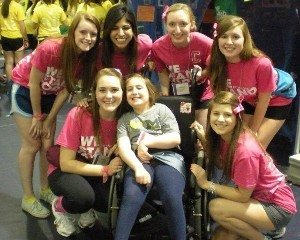Ann Arbor Health Care Centers
1. University of Michigan Health System
Ann Arbor is home to some of the finest health care centers in the Unites States, with hundreds of services ranging across a number of specialties and locations. Because so many divisions of the University of Michigan Health System exist, in this section we’ll only list Michigan’s largest medical resources and those resources directly pertaining to cerebral palsy, birth injury, and obstetrics.
- University Hospital: The University Hospital, the Health System’s hospital for adults, provides a range of medical services including diagnostic brain imaging, occupational, speech-language, and physical therapy, emergency medicine, and more.
- C.S. Mott Children’s Hospital: CS Mott Children’s Hospital provides specialized, comprehensive care for children. The hospital recently underwent a $745 million dollar remodeling, marking the largest and most advanced project in University of Michigan history. C.S. Mott Children’s Hospital offers clinical care, education, support services, research, and advocacy to promote the well-being of children and their families across Michigan.
- Some principal pediatric medical services of potential benefit to children with cerebral palsy or other birth injuries include:
- Burlington Building: The Burlington Building offers medical services including the cerebral palsy program, the Collaborative Wheelchair Program, neurosurgery, pediatric and adolescent physical medicine, and many more.
- Briarwood MedRehab: The Briarwood MedRehab facility offers occupational and physical therapy, rehabilitation psychology, and speech-language pathology.
- Briarwood Center for Women, Children, and Young Adults provides general pediatrics, obstetrics and gynecology, nutritional services, social work, and more.
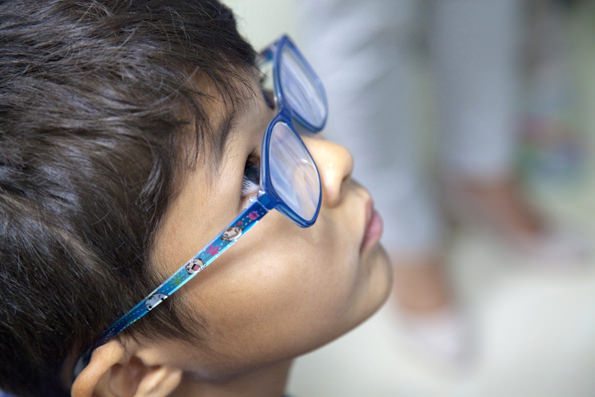 Pediatric Rehabilitation Center offers physical and occupational therapy, speech-language pathology, physician clinics, rehabilitation psychology, and assisted technology and gaming.
Pediatric Rehabilitation Center offers physical and occupational therapy, speech-language pathology, physician clinics, rehabilitation psychology, and assisted technology and gaming.- Ann Arbor Planned Parenthood provides women’s general and preventative medicine, gynecological services, pregnancy and childbirth care, family planning, and more.
- Von Voigtlander Women’s Hospital includes a fetal diagnostic center (high risk pregnancy management), a birthing center, and obstetrics and gynecology. Von Voigtlander Women’s Hospital is partnered with and in close proximity to C.S. Mott Children’s Hospital to promote the efficiency and closeness of the two medical facilities.
- Cerebral Palsy Comprehensive Care: The University of Michigan Health System is now home to one of the most extensive cerebral palsy programs in the nation, the Cerebral Palsy Comprehensive Care Program at the Burlington Building. The program is the University of Michigan Health System’s broad, one stop resource for cerebral palsy research, education, medical care, and more, providing care to those of all ages with mild to severe cerebral palsy. The program’s services including therapy, orthotics, pathologies, surgery, limb training, cognitive testing, counseling, and much more. Offering its services to patients around greater Michigan, the program includes research and treatment of spasticity, dystonia, and its associated complications.
2. The Ann Arbor Center for Developmental and Behavioral Pediatrics
The Ann Arbor Center for Developmental and Behavioral Pediatrics provides diagnosis, assessment, therapy, referral, and consulting for a number of pediatric developmental conditions in Ann Arbor.
Ann Arbor Cerebral Palsy Resources
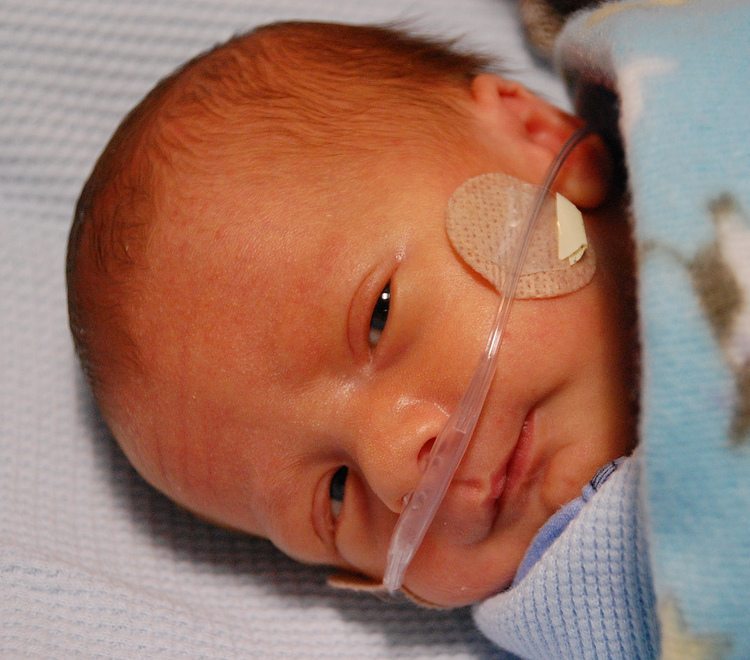 The city of Ann Arbor is a wellspring for cerebral palsy aid and awareness. Those affected by birth injury and developmental delays have access to an ample selection of medical services, support resources and disability benefits that make it simple to be part of the greater community. In this section we’ll list a few of these resources—however, we’ll just scratch the surface of what’s available in Ann Arbor. We encourage you to reach out to the various organizations, clubs, volunteers, professionals, and members of the community listed here for further community resources.
The city of Ann Arbor is a wellspring for cerebral palsy aid and awareness. Those affected by birth injury and developmental delays have access to an ample selection of medical services, support resources and disability benefits that make it simple to be part of the greater community. In this section we’ll list a few of these resources—however, we’ll just scratch the surface of what’s available in Ann Arbor. We encourage you to reach out to the various organizations, clubs, volunteers, professionals, and members of the community listed here for further community resources.
Care, Finance and Insurance Resources
1. University of Michigan Medical System Financial Aid
- C.S. Mott Children’s Hospital Financial Assistance Directory: C.S. Mott Children’s Hospital provides a comprehensive guide to medical insurance and financial assistance for uninsured children and pregnant women in Michigan. This insurance and financial aid resource discusses government sponsored programs like Supplemental Security Income (SSI) and Social Security Disability (SSD), Medicaid, Income Benefits Programs, MIChild, maternal and Infant Health Program, and many more. To read more about these programs, visit the C.S. Mott Children’s Hospital Financial Assistance site here.
- The University of Michigan Health System: The UM Health System provides financial assistance guidelines for medical services on their website. For families or patients without insurance or benefits, the University of Michigan Health System sponsors a financial support program called MSupport. To read more about the MSupport guidelines or to see if you qualify, visit the UM Health System site here.
2. Social Security Disability Help
- Social Security Disability Help: This insurance resource offers advice to Ann Arbor residents regarding Social Security Disability benefits—qualification requirements, application guidelines, Ann Arbor health resource centers, what to expect from disability benefits, and where to find Social Security Disability attorneys.
Lifestyle Resources in Ann Arbor, MI
1. Educational Resources
- Briarwood Milestones NeuroRehabilitation Program: The Pediatric NeuroRehabilitation Program is a department within the University of Michigan Health System’s comprehensive program in neuro-rehabilitation, which focuses on rehabilitation and adaptation to neurological changes associated with brain injury. Part of the program’s interdisciplinary approach includes special education and therapeutic schooling. To learn more about this educational resource, call Briarwood Milestones at 734-998-7710.
-
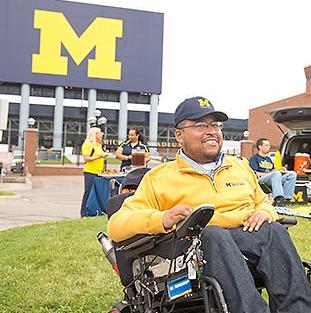
Lloyd Shelton, founder of the Students with Disabilities and our Allies Group and recipient of the 2014 James A. Neubacher Award
University of Michigan Services for Students with Disabilities (SSD): This resource serves as a comprehensive guide for disabled students at the University of Michigan. The SSD provides disability accommodations, sponsors events, provides scholarships, runs academic coaching and mentoring sessions, and provides other disability resources. The resource features student disability and advocacy groups, such as the University of Michigan student group known as Students with Disabilities and our Allies.
- Hospital School Program: C.S. Mott Children’s Hospital runs the Hospital School Program, an educational resource that provides schooling for children during extended hospital stays. Coordinators and certified teachers communicate with the child’s school and continue the child’s education in an in-hospital classroom or in the child’s personal hospital room.
- Ann Arbor Academy: The Ann Arbor Academy is a non-profit, co-ed school for students with learning differences. As a member of the Learning Disabilities Association of Michigan, the International Dyslexia Association, Autism Society of Michigan, and the National Coalition of Alternative Community Schools, the Ann Arbor Academy prepares students with disabilities for college curricula.
- Washtenaw Community College: Washtenaw Community College provides tutoring and learning disabilities assessments for children, adolescents, and adults with learning disabilities around Ann Arbor.
- The Ann Arbor Preschool and Family Center: Several programs offered by the Ann Arbor Preschool and Family Center serve preschool age students regardless of disability. Children with impairments or delays in mobility, development, cognitive ability, or communication skills can take part in educational programs including Early Intervention, Early Childhood Special Education (ECSE), Great Start Reading Program (GSRP), Head Start, and Community Special Education Services.
- Michigan Office of Special Education: The Michigan Department of Education’s Office of Special Education provides information regarding state programs, assessments, procedures, and more.
- The Center for Neuropsychology Learning & Development (CNLD) helps vulnerable or disabled patients develop the skills necessary to reach their full potentials. Lifelong CNLD services include testing and evaluation, strategy and planning, therapy, consultation, advocacy, memory training, and lectures and workshops. Typical CNLD clients have learning disabilities, behavioral or mental health problems, neurological and genetic disorders, developmental delays, cognitive impairment, and other conditions that, without attention, may limit success and quality of life.
2. Care
- Just Us Club Kids: Ann Arbor’s High Point School offers an after-school child care program for children with special needs. Five days a week, the program provides care to children under 26 years of age from 2:30-6:00 PM. Just Us Club develops fine motor skills, movement, cognitive ability, and social skills through activities like baking, games, art projects, music therapy, and more.
- Bright Star Care offers in-home care for children with special needs. Trained care specialists provide grooming, dressing, bathing, hygiene, and toileting services and conduct a wide range of therapy sessions with developmentally disabled children.
- Stone School Nursery welcomes special needs children to their school-administered and child care programs.
- Ann Arbor Special Needs Care Directory: A list of special needs care providers around Ann Arbor is available here.
- The Judson Center’s Child Welfare Services provide Adoption, Family Preservation, Foster Care, and Residential Treatment services to families.
- Ann Arbor Partners in Personal Assistance (PPA) is a non-profit organization that provides home- and community-based personal assistance services for individuals with disabilities and other care needs. To read more about PPA or to apply for services, visit their site here.
3. Employment
- Job Accommodation Network (JAN):
In accordance with the Americans with Disabilities Act (ADA), the Job Accommodation Network provides guidance on employment accommodations and disability employment issues. This United States Department of Labor resource fosters employee retention, job information, and communication for workers with disabilities. - Michigan Ability Partners provides vocational services for those with disabilities and special needs around Michigan. Services include career placement, career counseling, transitional work training, and career planning. Michigan Ability Partners has offices in Ann Arbor and Jackson, Michigan.
- The Ann Arbor Center for Independent Living (CIL) provides a career service that is another great resource for finding career advice, placement, and support around Ann Arbor.
- Real Life Living Services provides supported employment services for disabled people in Ann Arbor. Services include job development, support services, and other services that help disabled people maintain paid employment.
4. Housing
- Ann Arbor Center for Independent Living (CIL): The Center for Independent Living is a wonderful and comprehensive lifestyle resource for those with cerebral palsy or another birth injury. In terms of disability housing and living, the Center provides independent living coaching and advice on the transition from medical facilities to independent living.
- Real Life Living Services: Real Life Living Services (RLLS), a member of the Michigan Assisted Living Association, provides living support to people with varying ages and disabilities. Trained staff members evaluate the individual needs of each customer and provide community living support services, children’s respite services, home help, and employment services. Real Life Living Services has Michigan offices in Ann Arbor, Grand Rapids, and Manistee.
- Avalon Housing: Avalon Housing, a nonprofit that develops and manages permanent supportive housing, provides affordable housing for Washtenaw County’s low income households. Avalon Housing offers priority housing to those with mental or physical disabilities and blends social work practices into relationship with the tenants. Staff provide 24/7 on-call response for tenants, sponsor community gardening programs, and make accommodations for special needs tenants.
- Michigan Ability Partners provides housing services to those with special needs. Services include housing placement, eviction prevention, support, development, and a representative payee service for financial support.
- The Ann Arbor Housing Commission (AAHC) provides housing to low-income families, the elderly, and the disabled. The AAHC administers Section 8 Housing Choice Vouchers, which allow tenants to live in a privately owned property with particular AAHC rent subsidies.
- The Judson Center’s Disability Services provide several programs that allow Michigan residents with developmental disabilities to find housing and participate in their communities. Judson Center Disability Services include Group Homes, Respite Care, Vocational Services, and Supported Independence.
- Expertise.com is an online resource that aims to help make federal grants available to disabled people. More specifically, the guide aims to make the process of remodeling homes for accessibility much easier.
5. Transportation
- A-Ride (ADA/Disability Services): Ann Arbor’s A-Ride is a shared-ride, demand-responsive form of public transportation available to and created specifically for those individuals whose disabilities prevent them from using the fixed-route bus. A-Ride buses are equipped with ramps and lifts for wheelchair and walker accessibility.
- MyRide is a Mobility Management service that provides information about travel services, referrals, trip planning services, trip fare assistance, and travel training (lessons on how to utilize public transportation and plan realistic routes).
- Amtrak provides guidelines for special needs customers. Read about them here.
5. Adaptive Equipment and Assistive Technologies
-
University of Michigan Student Projects: Students from a number of University of Michigan courses create assistive technologies and adaptive equipment from class projects and initiatives. For example, in 2013 a group of students from an Electrical Engineering and Computer Science 481 course created a tabloid application designed to help Grace Simon, a girl with athetoid cerebral palsy, communicate. The students and Grace are pictured in the photograph to the right.
- Wheelchair Seating Service: The University of Michigan Health System’s Wheelchair Seating Service provides custom mobility products to children and adults with mobility limitations in Ann Arbor.
- The University of Michigan Orthotics and Prosthetics Center, a division of the Department of Physical Medicine and Rehabilitation, provides services to children and adults requiring orthotic and prosthetic devices in Ann Arbor and around Michigan.
- Danmar Products manufactures adaptive equipment and assistive technologies directly for medical professionals, caregivers, and end users. Customers use Danmar products for rehabilitation, recreational therapy, mobility, protection, toileting, and other daily activities.
- The Ann Arbor Center for Independent Living provides information and resources about assistive technologies. Learn how to use this equipment, where to find it, and more here.
- Michigan Loan Closets: The Washtenaw County Loan Programs directory is a great resource for finding assistive technology and adaptive equipment loan opportunities around you. Find an equipment provider here.
- The Ann Arbor District Library provides a number of assistive technology resources for the blind and physical disabled. Learn more here.
- The Pediatric Rehabilitation Center: The University of Michigan Health System’s Pediatric Rehabilitation Center offers assisted technology and adapted gaming for rehabilitative purposes. For more information about these services, call the office at 734-763-2554.
6. Accessible Playgrounds
- Boundless™ Playground at High Point School: High Point School’s Boundless Playground serves the accessibility needs of disabled children and provides even surfaces for wheelchairs, wheelchair lifts to play structures, and wheelchair ramps. Boundless Playground is located at 1735 S. Wagner Road in Ann Arbor, MI 48106.
- Haisley Elementary School Playground: Located at 825 Duncan St., Ann Arbor, MI 48103, Haisley Elementary School Playground has even surfaces for wheelchair and walker accessibility, ramps, a wheelchair accessible swing, sound-play components (musical instruments integrated into the play structures), and play components for visually-impaired children (including Braille surfaces, textures, and fragrances).
Organizations, Support, and Information
1. Foundations and Charities
-
Dance Marathon at the University of Michigan (DMUM): Dance Marathon at the University of Michigan, the largest student-run non-profit organization in the state of Michigan, supports pediatric rehabilitation and therapy programs at C.S. Mott Children’s Hospital in Ann Arbor and Beaumont in Royal Oak. Before the program concludes in the final “dance marathon” each year, students and volunteers participate in a number of fundraisers and activities aimed at raising money for pediatric therapy and spreading awareness about childhood disabilities. During the annual dance marathon, hundreds of volunteers dance and stand on their feet for 24 hours straight in honor of the children with disabilities who cannot do so themselves.
- C.S. Mott Children’s Hospital Charity: C.S. Mott Children’s Hospital encourages the public to donate funds and resources to support pediatric medicine, research, education, facilities, and other resources. To learn more about the charity or to donate, click here.
- The Charles Woodson Research Fund: The Charles Woodson Research Fund is a current Mott Hospital fundraising initiative researches and works to advance treatments and therapies for serious childhood conditions and illnesses including cancer, developmental disabilities, and more. Michigan Cerebral Palsy Attorneys’ partnering lawyer Jesse Reiter is an active contributor for C.S. Mott’s Woodson Fund and advocates for the continued development and success of the initiative.
2. Disability Organizations
- The Ann Arbor Commission on Disability Issues has compiled a disability resource directory for its disabled citizens. This page lists the various national, state, and community resources available to people with a wide array of disabilities. To visit the site, click here.
- National Alliance on Mental Illness (NAMI): The NAMI of Washtenaw County is a non-profit organization that aims to improve the well-being of those with mental illnesses or biological disorders. NAMI is a member of the national NAMI and NAMI Michigan and provides educational resources, campaigns for updated disability policy, sponsors events, and raises funds and awareness for mental illness.
- Washtenaw Association for Community Advocacy (WACA): The Washtenaw ACA is a disability organization that aims to ensure that those affected by disabilities have equal opportunities for education, respect, choice, and community inclusion. Washtenaw ACA provides Individualized Education Plans (IEP) for parents to support their children, aids children with transition from K-12 education, facilitates person-centered planning meetings, offers representative payee programs to ensure the disabled receive benefits, and helps disabled people navigate the criminal, civil, probate, and juvenile court systems if need be.
- The Judson Center is a human services nonprofit organization that provides a range of services aimed at helping Michigan children, adults, and families improve their lives. The Judson Center’s core programs and services include Behavioral Health, Child Welfare, the Autism Connection, and Disability Services. The Judson Center operates offices in Royal Oak, Flint, Warren, Ann Arbor, and Redford.
3. Research Organizations
- Center for Motor Behavior & Pediatric Disabilities: The Center for Motor Behavior & Pediatric Disabilities is a research center organized and run by the University of Michigan’s Division of Kinesiology. The center’s mission is to conduct scientific research on individuals with Down syndrome, cerebral palsy, and spina bifida in order to design and implement new clinical services. To learn more about the center, its research, participation, or donation options, click here.
- University of Michigan Initiative on Disability Studies (UMInDS): UMInDS, a department of study at the University of Michigan, explores the art, music, literature, politics, culture, and science infused with and generated by the experience of disability. The program offers classes, seminars, research opportunities, grants, and internships for interested students.
- Cerebral Palsy Comprehensive Care: The University of Michigan’s comprehensive cerebral palsy program conducts a number of research projects on cerebral palsy and offers many opportunities for research participation for people with cerebral palsy. Some of these research projects include the following:
- Adapted Cognitive Assessment Lab (ACAL): At the ACAL, researchers work to develop adapted forms of standardized tests for children with communication and motor impairments.
- ULTRA Project: The Upper Limb Training in Adults (ULTrA) with Hemiplegic Cerebral Palsy initiative studies upper limb training and neural plasticity in adults with cerebral palsy.
- Origins, Wellness, and Life History in CP (OWL): Conducted with the UM Health System’s partners at Michigan State University, the OWL project researches the early causes of cerebral palsy (brain damage) and how it can be prevented.
- To read about other research initiatives and opportunities, click here.
- The University of Michigan Health System Department of Pediatrics & Communicable Diseases employs a number of researchers and fellows that conduct neonatal research. Research projects investigate topics like hypoxic-ischemic encephalopathy (HIE), neonatal brain injury from maternal health issues, hypothermia treatment following HIE, and more.
4. Support and Informational Groups
C.S. Mott Children’s Hospital Palliative Care Program: C.S. Mott Children’s Hospital provides palliative care for children whose complex medical conditions limit their physical, emotional, or spiritual well-being in an unpreventable way. The palliative care team eases the symptoms and suffering of a child’s condition, promotes open discussion and expression, helps preserve dignity and comfort, and helps both the child and family members cope with feelings of anger, sadness guilt, or frustration.
5. Advocacy
- The University of Michigan Council for Disability Concerns (CFDC) addresses disability issues affecting members of the University of Michigan community. The Council addresses concerns including the Construction Advisory Committee, Investing in Ability Week (IAW) Speakers Committee, the Neubacher Award Committee, and more.
6. Family and Parent Resources
- C.S. Mott Children’s Hospital Parent Massage Classes: The Children’s Hospital offers massage classes to the parents of pediatric patients. Certified infant and pediatric massage instructors teach parents how to provide nurturing and therapeutic touch to their children to ease the pains and stresses of hospitalization.
- Patient- and Family-Centered Care at C.S. Mott Children’s Hospital is a care model centered on recognizing each family’s individual needs and core values. Patient and Family Centered Care honors family beliefs and practices, communicates information to the whole family, creates personal and inclusive environments for families, and provides opportunities for family members to be included in medical experiences and policies.
- C.S. Mott Children’s Hospital Spiritual Care: C.S. Mott Children’s Hospital offers a Spiritual Care program in which clinically trained chaplains and religious leaders provide spiritual care to patients and their families.
- C.S. Mott Children’s Hospital Support Programs: C.S. Mott offers support to parents and families of hospitalized children through a number of support groups and programs. A complete list of programs can be found here.
- Pain Management Resources: C.S. Mott Children’s Hospital provides a set of pain management guidelines for the parents and families of pediatric patients. The resources cover pain prevention, side effects, medicines, pain assessment, and tips to help children express and cope with pain.
Treatment and Therapy Resources
1. Physical Therapy
- Briarwood MedRehab Milestones Outpatient Pediatric Physical Therapy: Offered through the Cerebral Palsy Comprehensive Clinic, physical therapists at Briarwood Milestones evaluate and treat infants, children, and young adults with a range of rehabilitation needs. The program works closely with family members, Speech Therapy programs, and Therapeutic Recreation programs for the best possible interdisciplinary approach. Two Brairwood Milestones programs of specific benefit to children with cerebral palsy include:
- Constraint Induced Therapy: CHAMP: Children with cerebral palsy can benefit from MedRehab’s Comprehensive Hand and Arm Movement Program (CHAMP), a three-week intensive program that restores function in a child’s affected hand. The child uses a device to eliminate use of the stronger hand and arm to better rehabilitate the affected hand.
- NeuroRehabilitation Program: NeuroRehabilitation aims to promote recovery from and adaptation to changes in the brain resulting from neurological disease or brain injury. The treatment team designs a personalized and interdisciplinary treatment approach utilizing occupational therapy, physical therapy, psychology, case management, speech-language pathology, therapeutic recreation, special education, and specialty programs.
- Pediatric Rehabilitation Center: The University of Michigan Pediatric Rehabilitation Center offers physical therapy programs tailored specifically to children’s mobility issues.
- Eisenhower Center Physical Therapy: Eisenhower Center Physical Therapy sessions base therapy around the individual’s mobility needs. Some exercises improve gait abnormalities, imbalance, circulation, core strength, and more. The center works closely with recreational therapy centers to add enjoyment to physical therapy regimens.
2. Recreational Therapy
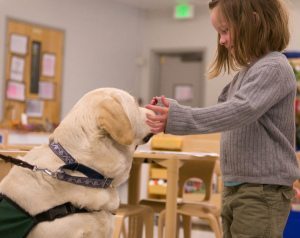 NeuroRehabilitation Program: The University of Michigan Health System’s NeuroRehabilitation program combines recreational therapy with other forms of therapy to add enjoyment to treatment processes.
NeuroRehabilitation Program: The University of Michigan Health System’s NeuroRehabilitation program combines recreational therapy with other forms of therapy to add enjoyment to treatment processes.- Constraint Induced Therapy: Briarwood Milestones’ Constraint Induced Therapy targets patients’ affected upper limbs by eliminating use of the stronger limbs. Children are encouraged to play with toys, participate in sports, and take part in other forms of recreational therapy using their non-dominant side in this program.
- Discovery Gardens: Discovery Gardens are two community organic garden sites in Ann Arbor that accommodate all community members regardless of ability. To support easy access, Discovery Gardens have raised beds, accessible pathways, instructional help and guidance, and a setup well suited for the visually-impaired. At Discovery Gardens, those with disabilities are encouraged to learn about gardening, have fun, and reap the therapeutic benefits of working with plants.
Recreational Therapy: Animal Therapy
- C.S. Mott Therapaws: C.S. Mott Children’s Hospital sponsors a pet therapy program to diminish the stresses of hospitalization, illness, recover, and disability. Trained therapy dogs visit patients in their hospital rooms, during physical and occupational therapy sessions, in waiting rooms, and in other settings.
- Therapeutic Riding, Inc. (TRI): TRI is a non-profit organization that provides disabled children and adults with horseback riding lessons. Therapeutic horseback riding at TRI improves balance, strength, communication skills, social skills, and self-esteem in a fun environment. To read more about the physical, cognitive, emotional, and social benefits of therapeutic horseback riding, visit this page.
- Michigan Abilities Center (MAC): MAC is another Ann Arbor resource for equine assisted therapy. MAC programs and lessons focus on strengths and abilities rather than disabilities to achieve personal goals, improve function, promote self-esteem, and support empowerment.
Recreational Therapy: Sports Therapy
- Ann Arbor Center for Independent Living (CIL): The Ann Arbor CIL offers a number of sports programs, teams, and facilities for people with a range of disabilities. Some sports offerings include cycling, a fitness gym, bowling, wheelchair basketball, tennis, rugby, floor hockey, volleyball, football, paddling, and more. Visitors can check out the sports and recreation calendar to learn more about seasonal offerings here.
- Ann Arbor CIL IRide Adaptive Cycling Event: The Ann Arbor CIL sponsors IRide, an annual four-day cycling event that starts in St. Joseph, MI and concludes in Ann Arbor. The event raises funds for the Ann Arbor CIL Sports and Recreation Program.
- Rolling Hills County Park Fishing: At the four-acre pond at Rolling Hills County Park, handicapped visitors may fish from the bank or from two wheelchair-accessible fishing piers. Visit the park’s website here.
- The Ann Arbor Rockets is Ann Arbor’s special hockey team. Rockets Hockey provides opportunities for children with physical, developmental, and cognitive disabilities to participate on a hockey team.
Recreational Therapy: Aquatic Therapy
Eisenhower Center: The Eisenhower Center’s aquatic therapy pool features an underwater treadmill, a body harness, a lift for wheelchair accessibility, and massage jets. Aquatic therapy is an important and fun part of physical rehabilitation at the Eisenhower Center.
Recreational Therapy: Special Needs Camps
- NeuroRehabilitation Summer Therapy Program: The University of Michigan Health System’s NeuroRehabilitation Program offers a summer therapy program for children adapting to and recovering from neurological disease or brain injury. Summer camp programs provide patients with intensive, interdisciplinary exercises in a fun and inclusive environment.
- Leslie Nature Center offers school break camps and summer camps for special needs children. Camps focus on nature, adventure, and the natural sciences.
- The Plymouth Community Arts Council sponsors art summer camps for children with disabilities. Exercises range across the arts and each camper can participate in the activities he or she is most interested in.
3. Occupational Therapy
- Briarwood MedRehab Milestones Outpatient Pediatric Occupational Therapy: The Cerebral Palsy Comprehensive Clinic’s occupational therapists evaluate and treat infants, children, and young adults with a range of occupational therapy needs. The program uses an interdisciplinary approach to improve patients’ abilities to live and function independently. Two Briarwood Milestones occupational therapy programs are particularly beneficial to children with cerebral palsy:
- Constraint Induced Therapy (CHAMP): CHAMP: MedRehab’s Comprehensive Hand and Arm Movement Program (CHAMP) is a three-week intensive program that restores and strengthens a child’s affected hand. The child uses a device to eliminate use of the stronger hand and arm to better rehabilitate the affected hand in order to conduct daily routines and activities with skill and independence.
- NeuroRehabilitation Program: NeuroRehabilitation aims to promote recovery from and adaptation to changes in the brain resulting from neurological disease or brain injury. The occupational therapy component of the program finds creative ways for children to accomplish daily activities around their disability.
- Pediatric Rehabilitation Center: This University of Michigan Pediatric Rehabilitation Center offers occupational therapy programs tailored specifically to children’s mobility issues. Occupational therapists work to help children adapt to their mobility or cognitive limitations in order to complete daily tasks independently.
- Eisenhower Center: The Eisenhower Center’s occupational therapy programs often work with patients in their communities or in their homes to maximize their abilities to complete daily tasks independently.
4. Speech and Language Therapy
- The Augmentative and Alternative Communication Clinics assess and promote communication skills in children and adults whose developmental disabilities limit their communication abilities.
- Eisenhower Center: The Eisenhower Center offers speech and language therapy sessions for those who have impaired communication, oral, or swallowing abilities. Speech and language therapy is often coupled with another one of the Eisenhower Center’s forms of therapy.
- Briarwood Milestones NeuroRehabilitation: The University of Michigan’s Briarwood Milestones center offers speech and language therapy classes for children, infants, and adults who have suffered a brain injury or neurological damage.
- Pediatric Rehabilitation Center: This University of Michigan Pediatric Rehabilitation Center offers speech and language therapy programs for patients with oral, communication, or swallowing problems.
- University of Michigan Sound Support: The UM Department of Otolaryngology funds Sound Support, a program that assesses, identifies, and rehabilitates hearing loss and communication delays in children. Sound Support specialists provide consultation and connect patients with the proper medical professionals.
- Listening and Language Connections, LLC: Listening and Language Connections provides auditory-verbal support and family-centered aural habilitation services to children with hearing loss.
5. Hyperbaric Oxygen Therapy
Hyperbaric Oxygen Therapy (HBOT) facilities can be found in two Ann Arbor locations—at the University of Michigan Health System Wound Care Clinic and the Natural Balance Hyperbaric Center. A number of children and adults affected by cerebral palsy around Ann Arbor supplement traditional treatments and therapies with HBOT.
6. Complementary and Alternative Therapies
- The Ann Arbor Alternative Medicine Directory is a comprehensive list of the alternative and complementary forms of treatment offered around Ann Arbor. The directory covers a number of services including acupuncture, art therapy, Chinese medicine, chiropractic medicine, craniosacral therapy, energy healing, homeopathy, massage therapy, nutritional guidance, Pilates, psychotherapy, reflexology, Reiki, yoga and more.
- C.S. Mott Patient Food and Nutrition Services: C.S. Mott Children’s Hospital offers Patient Food and Nutrition Services to determine the best diet based on a patient’s medical condition and treatment plan.
- University of Michigan Integrative Medicine: University of Michigan Integrative Medicine is an interdisciplinary program dedicated to the integration of complementary and alternative medicine with traditional medicine. The program focuses on research, education, clinical services, and community partnerships surrounding complementary and alternative medicines. To learn more or contact the department, visit their website here.
- Jan Sevde of Ann Arbor Body & Mind is a certified Anat Baniel Method (ABM) practitioner that provides rehabilitation programs for children with conditions including cerebral palsy (CP), stroke, brachial plexus injuries, genetic disorders, autism spectrum disorders, birth injuries, neurological issues, developmental delays, scoliosis, traumatic brain injury (TBI), ADHD, and more.
7. Behavioral Therapy and Emotional Counseling
- C.S. Mott Children’s Hospital Department of Behavioral and Mental Health addresses the mental and emotional needs of adolescents and children with a range of conditions. The department offers clinics, therapy, counseling, consultation, and treatment resources for patients and their families.
- C.S. Mott Children’s Hospital Pediatric Psychology: C.S. Mott provides pediatric psychologists to help children cope with any emotional or psychological side effects of hospitalization, illness, or disability.
- C.S. Mott Children’s Hospital Social Work Program provides pediatric patients and their family members with access to social workers. Visits address patient and family concerns, provide communication between patients, families, and medical professionals, assist with financial need issues, provide emotional and psychological support, answer questions, and much more.
- C.S. Mott Children’s Hospital Spiritual Care: C.S. Mott Children’s Hospital offers a Spiritual Care program in which clinically trained chaplains and religious leaders provide spiritual care to patients and their families.
- Eisenhower Center: The Eisenhower Center’s Psychological Counseling and Therapy Program provides individual, family, and group support and counseling to patients as they recover after a brain injury.
- The Judson Center provides both in- and outpatient behavioral health services for individuals working through mental health, behavioral, or emotional issues. The behavioral health team consists of certified therapists and counselors with extensive training in Motivational Interviewing, Trauma-Focused Cognitive Behavioral Therapy, and Dialectical Behavioral Therapy. The In-Home Family Treatment Program, which is available in through any of the Judson Center’s locations, is a six month program that provides services including conflict resolution, individual and family therapy, psychiatric services, parenting skills, communication exercises, and much more.
Ann Arbor Medical Resources
1. Diagnostic Testing
- The Adapted Cognitive Assessment Clinic (ACAC) at the University of Michigan Health System’s Cerebral Palsy Comprehensive Clinic provides cognitive evaluations for children whose movement or speech impairments make it difficult or impossible to take traditional neuropsychological tests.
- C.S. Mott Children’s Hospital Pediatric Imaging: Imaging devices at C.S. Mott Children’s Hospital are specially designed to accommodate the size, needs, and comfort of children. Imaging services include CT scans, X-ray and general imaging, flouroscopy, magnetic resonance imaging (MRI), ultrasound, pediatric interventional radiology (IR), and nuclear medicine.
2. Surgery
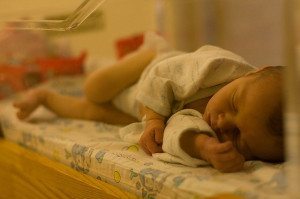 The University of Michigan Health System’s Spasticity Intervention Program combines medical knowledge in the Department of Neurosurgery, the Department of Neurology, and the Department of Physical Medicine and Rehabilitation to reduce spasticity in patients with cerebral palsy. The Spasticity Intervention Program offers surgeries including neurosurgery, orthopedics, selective dorsal rhizotomy, and baclofen pump insertion. Once children undergo surgery, a number of post-surgery treatment, therapy, and rehabilitation programs are available to recover mobility and function. One such program is the Pediatric and Adolescent Physical Medicine at the Burlington Building, which offers baclofen pump recovery programs, selective dorsal rhizotomy treatment programs, and more.
The University of Michigan Health System’s Spasticity Intervention Program combines medical knowledge in the Department of Neurosurgery, the Department of Neurology, and the Department of Physical Medicine and Rehabilitation to reduce spasticity in patients with cerebral palsy. The Spasticity Intervention Program offers surgeries including neurosurgery, orthopedics, selective dorsal rhizotomy, and baclofen pump insertion. Once children undergo surgery, a number of post-surgery treatment, therapy, and rehabilitation programs are available to recover mobility and function. One such program is the Pediatric and Adolescent Physical Medicine at the Burlington Building, which offers baclofen pump recovery programs, selective dorsal rhizotomy treatment programs, and more.
